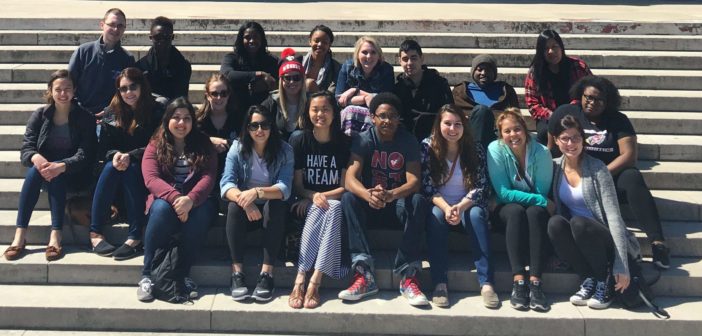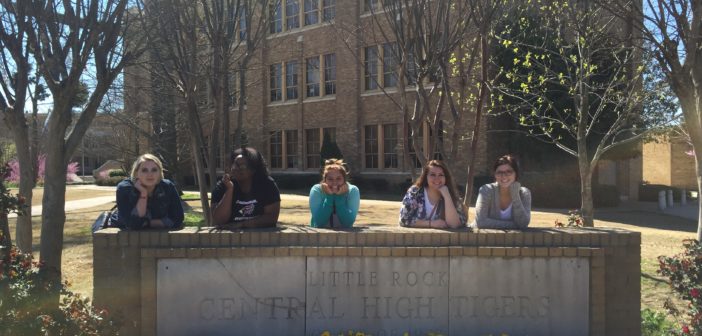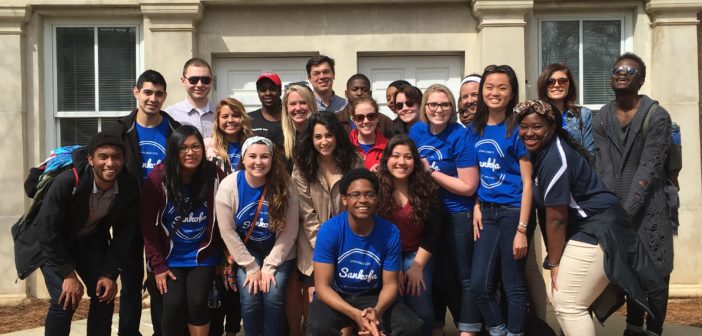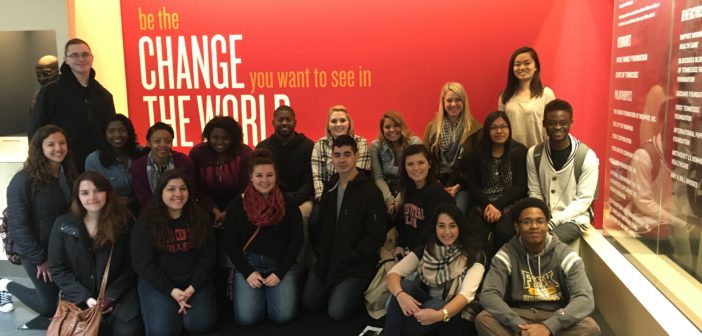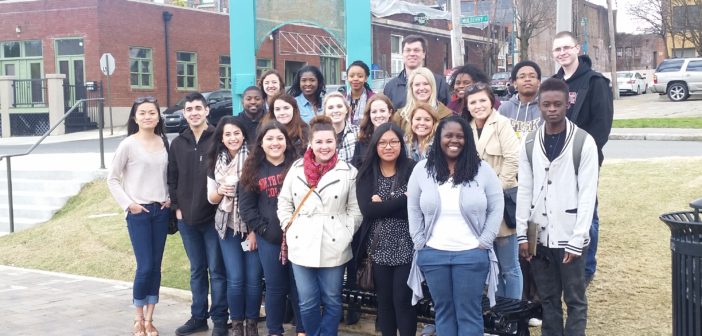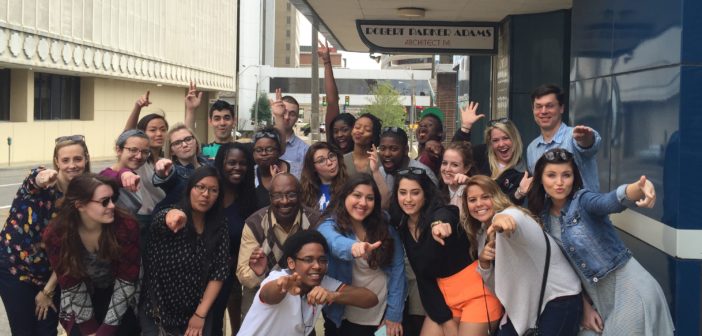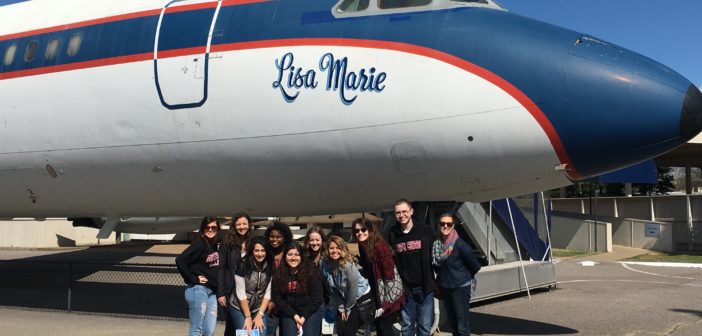In 2007, former director of multicultural affairs of North Central College, Viviana Kabbabe-Thompson, introduced the concept of Sankofa trips to students.
The word Sankofa came from the Twi language of Ghana, which means, “Go back and get it.” The symbol of Sankofa is expressed as a mythic bird that flies forward while looking backward with an egg in its mouth.
Rosa Parks once said, “Racism is still with us. But, it is up to us to prepare our children for what they have to meet, and, hopefully, we shall overcome.”
These Sankofa trips teach young generations that in order to move forward in life, we must go back to our roots. In order to know where we are going in life, we must go back to our past and understand where we came from.
Dorothy Pleas, the current director of multicultural affairs, continues the tradition of Sankofa trips. These trips usually take place during Spring Break.
“It’s been great. It’s fantastic. Every time I go on these trips, it reminds of why I do what I do – why I work with college students,” said Pleas. “I like making changes and being able to impact students to do the same.”
The Sankofa trip occurred March 21 to March 28. Students participated in a unique study to reflect the struggles of the civil rights movement and to understand the impact race has on our nation.
For the past two years the Sankofa trips were treated as a Verandah course, which allowed students to either register for zero or one credit, according to Pleas.
Faculty members also went on these trips. This year, professor William Barnett, who is the department chairperson and associate professor of history at North Central College, attended along with Dr. Suzanne Chod, assistant professor of political science.
Professor Barnett shared his experience during the trip. “I think meeting people who are activists back in the 1960s is what I always will remember.”
He continued, “Reading stuff in books can be powerful, but talking to people and having lunch with them during the trip, makes it real.”
Dr. Chod responded, “For me, this trip was about putting students, and myself inside of history as a way to understand the present.
“We can talk about slavery, civil rights, Jim Crow, and etc., but it feels so distant. Being in these places and speaking to the people who endured the unimaginable is powerful,” she said.
Chod also sees importance in, “using those moments to contextualize continued institutional and structural racisms helps provide a perspective difficult to explain at times. Students were most struck by the enduring poverty and inequity; for me, that was the point.”
This year’s Sankofa trip took 20 students from different ethnic backgrounds to Memphis, Tenn.; Little Rock, Ark.; and Jackson, Miss.
Professor Barnett said that the key theme of this year’s trip is to understand educational opportunities and efforts of integrated schools, specifically the battles when Little Rock’s Central High School and the University of Mississippi in Oxford, Miss., were desegregated.
Additionally, students were also given opportunities to voice their opinions about structural inequalities that still exist today.
Manilyn Gumapas, a sophomore at North Central College, majoring in sociology with a minor in music and social change leadership, went on the Sankofa trip twice: once last year, and the second time this year. Gumapas believes that issues with racial inequalities have roots.
“Everyone had different expectations and perspectives. A lot of it came out of anger from everything that has happened this year. I went on these trips in search for answers,” said Gumapas.
Gumapas returned from the trip with a greater understanding, “One thing that I learned from this year’s trip is that we all have different experiences with racism, particularly those who are minorities,” said Gumapas. “You have to allow yourself to be challenged to talk about these racial issues. Everyone has a place in these conversations.”
Experience can lead to personal growth as Michele Dobbs, a social science and history major, minoring in secondary education explained why she decided to go on the trip twice: “After last year, I found how I used my experience everyday and completely changed me as a person, student and teacher,” said Dobbs. “I wanted to go again to hopefully gain even more experiences and knowledge, in order to grow and challenge myself.”

